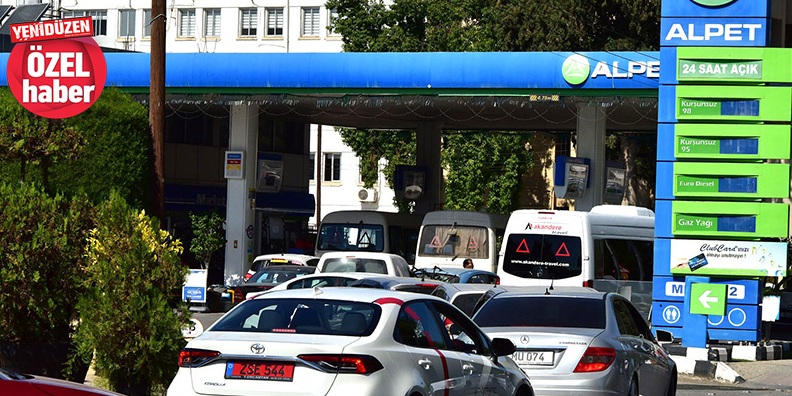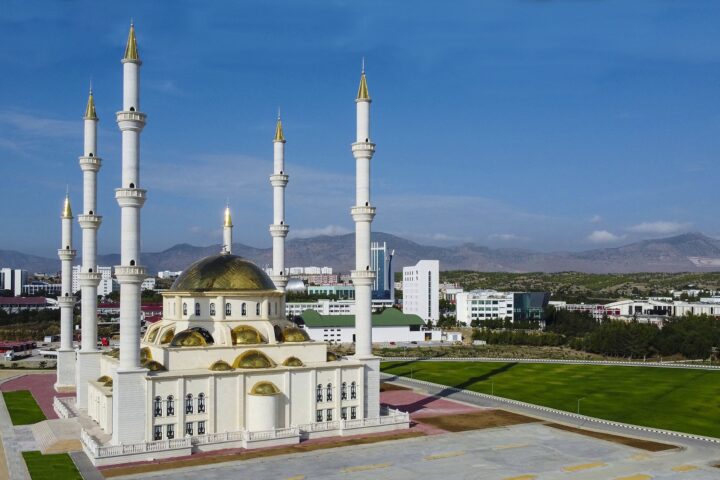Turkish Cypriots are reeling from a shifting landscape after the ruling coalition resigned, a fuel crisis brewing after the collapse of the Turkish lira, leading petrol stations to close as they were losing money.
On Friday, Turkish Cypriots found themselves in the awkward position of heading south to fill up their vehicles in the Republic.
Until recently, the rush for petrol was headed north, as Turkish Cypriot petrol stations sold petrol at half the price of the Republic (€1.40).
But two major fuel importers in the breakaway north announced on Wednesday; they will be closing their outlets once they’ve run out of existing stock.
Turkey’s lira had reached an all-time low against the dollar and the euro, dropping to 10.84 to the euro, with uncertainty looming over the future of the currency following another set of interventions in the country’s monetary policy by President Recep Tayyip Erdogan.
The vice president of the north’s petrol stations association, Ertal Fidan, told Turkish Cypriot daily YeniDuzen that after the last increase in petrol prices, suppliers were calling for a fresh increase as losses were too big to handle.
The petrol stations association official explained that fuel is bought with dollars.
Any change in the currency can only be reflected on prices through an automatic pricing system that updates the oil price according to the exchange rate every 15 days.
The next price adjustment is slotted for 26 October, but the distribution companies are already making losses.
They were losing 1-1.30TL per litre sold, he argued.
The coalition had intervened on Thursday, pressuring petrol stations to reopen, threatening to take action against them if they did not.
Some reopened to serve motorists with 98 Octane petrol and Diesel, as 95 Octane reserves had run out, with the companies not willing to import more at the moment.
According to Turkish Cypriot media, the fuel crisis has, in turn, fuelled panic buying by Turkish Cypriots, as supermarkets report shortages.
Last week, Turkish Cypriots witnessed their ruling coalition collapse as their constituents abstained from the assembly sessions, creating quorum issues.
This led the leader of the tri-partite coalition of the National Unity Party (UBP)-Democrat Party (DP)-Rebirth Party (YDP), Ersan Saner, to tender his resignation to Turkish Cypriot leader Ersin Tatar quoting quorum issues within the assembly last week.
Turkish Cypriots are heading for an early election after three years. It will probably take place on 26 December.
Meanwhile, the tri-partite coalition of the National Unity Party (UBP)-Democrat Party (DP)-Rebirth Party (YDP), under UBP’s Ersan Saner, is the second shortest-lived coalition in the north, lasting just 10 months in power.
The coalition under Saner took power after the former leader of the coalition, Ersin Tatar, was elected as the Turkish Cypriot leader.
Saner stayed on as acting ‘prime minister’ until the elections; however, his political future was shaken after a sex scandal emerged.
The coalition leader was at the centre of a ‘sex tape’ doing the rounds on social media.
The video allegedly shows a married Saner in bed with a woman in her twenties.
The Turkish Cypriot ruling coalition leader has denied involvement in the ‘sex tape’, claiming he was framed.
The video was circulated ‘courtesy’ of mafia boss Sedat Peker, targeting Turkish Cypriot politicians.
Peker has long been publicising “evidence” against Turkish ministers and has previously referred to cases involving illegal activities in the north.
The mafia boss claims that Ankara was behind the 1996 assassination of a Turkish Cypriot journalist has awakened memories of dark deeds in the Turkey-occupied north of Cyprus.
A convicted mob boss, Peker, 50, now in self-exile in Dubai, caused turmoil after releasing videos with revelations about political figures in Turkey and their alleged nefarious activities.
Such activities ranged from drugs, political assassinations, and rape; Peker fired mainly at President Erdogan’s ruling AK Party members.










